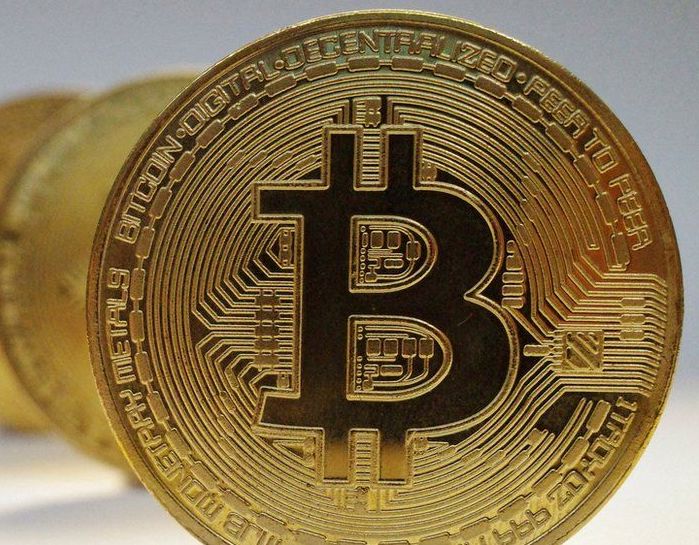By acting as money and a means of payment independent of any one person, group, or entity, a cryptocurrency like bitcoin eliminates the need for third parties to get involved in financial transactions. It is available for purchase on numerous platforms and is given to blockchain miners as compensation for their efforts in verifying transactions.

An unidentified creator or group of developers going by the name Satoshi Nakamoto released Bitcoin to the world in 2009.
Since then, it has emerged as the currency with the most significant global recognition. Many additional cryptocurrencies have been created as a result of its success. These rivals either want to displace it as a means of exchange or are employed as utility or security tokens in other blockchains and cutting-edge financial systems.
How Bitcoin Works
A file kept in a digital wallet on a computer or smartphone corresponds to one bitcoin. Understanding the following terminologies and some background information can help you grasp how cryptocurrencies operate:
Blockchain: The open-source technology known as blockchain, which powers Bitcoin, produces a shared public history of transactions arranged into “blocks” that are “chained” together to prevent fraud. Every user may operate with the same understanding of who owns what thanks to this technology, which maintains a permanent record of every transaction.
Private and Public Keys: A Bitcoin wallet contains a public key and a private key that together enable the owner to start transactions and digitally sign them. This enables Bitcoin’s main feature, which is the secure transfer of ownership from one user to another.
Bitcoin Mining: The process of “mining,” used by users on the Bitcoin network to verify transactions, aims to ensure that new transactions are consistent with previously completed ones. As a result, you cannot spend a Bitcoin that you do not possess or that you have already used.
Should You Invest in Bitcoin?
Investing in cryptocurrencies exposes you to a risky asset class. As a general rule of thumb, riskier assets like Bitcoin or individual equities should only make up a small fraction of a diversified portfolio.
Whether or not Bitcoin is a wise investment for you will depend on your specific situation, but here are some advantages and disadvantages to consider.
Pros
- Anytime transactions that are private and secure with lower possible fees. Once you have Bitcoin, you may send it to anyone, anywhere, at any time, which cuts down on the time and potential cost of every transaction. Transactions don’t include personal information like a name or credit card number, therefore there is no chance that this data might be used for identity theft or fraudulent transactions.
- There is enormous development potential. Some investors who purchase and keep the money are making the wager that as Bitcoin develops, more people will come to trust it and utilize it, increasing its value.
- Decentralization – Some investors are keen to adopt an alternative, decentralized currency after the financial crisis and the Great Recession; one that is fundamentally independent of conventional banks, governing bodies, or other third parties.
Cons
- Price turbulence: Although the price of Bitcoin has increased significantly over time, buyers’ outcomes have varied greatly based on the timing of their investments. For example, those who purchased Bitcoin in 2017 when its price was surging toward $20,000 had to wait until December 2020 to recoup their losses. And while Bitcoin experienced a successful year in 2021, it has since dropped significantly from its record highs.
- Hacking issues. There have been a number of high-profile thefts, despite supporters’ claims that the blockchain technology behind Bitcoin is even more secure than conventional electronic money transactions. For example, on the cryptocurrency exchange Binance, more than $40 million worth of Bitcoin was stolen from numerous high-net-worth accounts in May 2019. (The business paid for the losses.)
- Low usage, but it’s increasing. Bitcoin is now being accepted as payment by a small number of businesses. These businesses are an exception.
- There is no SIPC protection. Investors are covered up to $500,000 by the Securities Investor Protection Corporation in the event that a brokerage collapses or assets are stolen, but bitcoin is not covered by this insurance.
With a 24-hour trading volume of $30,996,528,191 USD, the current live price of one bitcoin is $20,079.69 USD. It has a maximum supply of 21,000,000 BTC coins and a circulating supply of 19,138,343 BTC coins.
To ask any questions related to the rights of NRIs, PIOs, and OCIs, you can download SBNRI App from the Google Play Store or App Store. You can also use the SBNRI app for investment in stock market/ mutual funds, NRI account opening, tax filing, etc. To ask any questions, click on the button below. Also, visit our blog for more details.
FAQ
An unidentified creator or group of developers going by the name Satoshi Nakamoto released Bitcoin to the world in 2009.
The open-source technology known as blockchain, which powers Bitcoin, produces a shared public history of transactions arranged into “blocks” that are “chained” together to prevent fraud. Every Bitcoin user may operate with the same understanding of who owns what thanks to this technology, which maintains a permanent record of every transaction.
By acting as money and a means of payment independent of any one person, group, or entity, a cryptocurrency like bitcoin eliminates the need for third parties to get involved in financial transactions.
A financial transaction app that works on mobile devices is known as a digital wallet (or electronic wallet). Your payment data as well as passwords are securely stored. So that you don’t have to carry your cards around, these programs let you to make purchases while shopping using your mobile. You can make purchases using your device after entering and storing your credit card, debit card, or bank account information.



